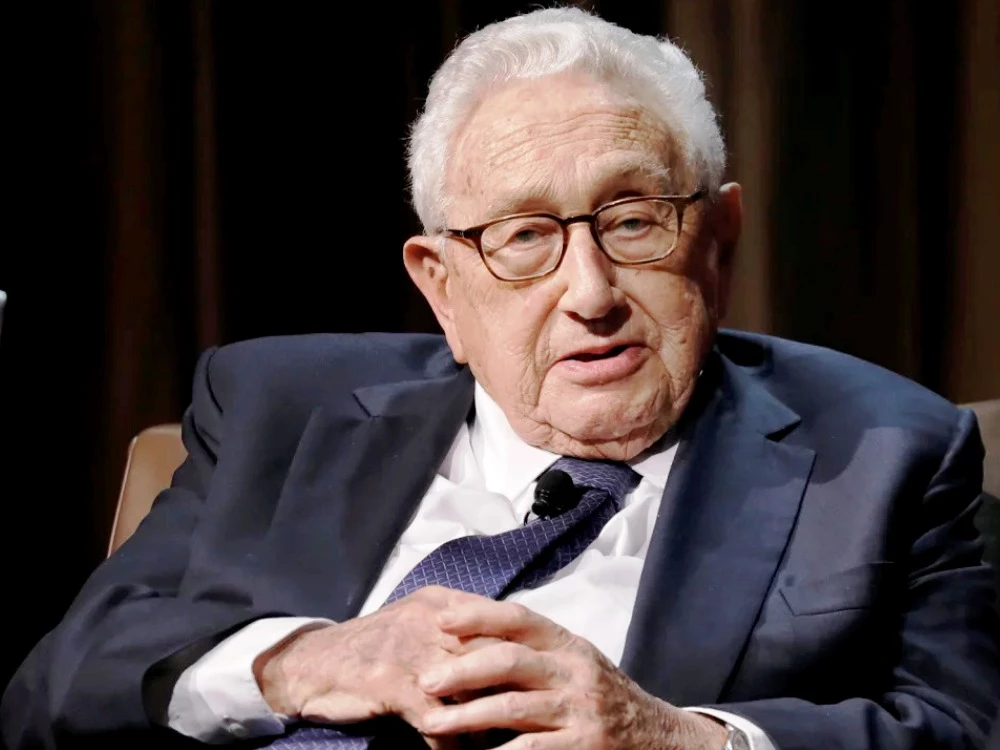Henry Kissinger, the former diplomat and presidential adviser, reaches a momentous milestone as he celebrates his 100th birthday. His longevity is a testament to his enduring influence in global affairs and his significant role in shaping American foreign policy during one of the nation’s most tumultuous periods. From his involvement in the Vietnam War to his contributions to Cold War tensions and his recent engagements, Kissinger’s journey has been one marked by controversy, accomplishments, and enduring impact.
Born on May 27, 1923, in Germany, Henry Kissinger emerged as a prominent figure in American politics and international diplomacy. His pivotal role in U.S. foreign policy during the 1960s and 1970s, particularly in relation to Vietnam, remains a subject of intense scrutiny and debate.
Kissinger’s efforts to extricate the United States from the Vietnam War became inextricably linked to controversial actions and decisions. Despite this, he continued to navigate the complex landscape of American politics, demonstrating resilience and an unwavering commitment to diplomacy.
In a recent article published in The Washington Post, David Kissinger, Henry’s son, reflected on his father’s centenary, stating that it was inevitable given his force of character and love for historical symbolism. David highlighted Henry’s exceptional longevity, surpassing many of his contemporaries, detractors, and even students. Throughout his 90s, Henry Kissinger remained indefatigably active, providing advice to presidents from both political parties and maintaining an international consulting business.
As an elder statesman, Kissinger has wielded significant influence over Washington’s power brokers. His expertise and counsel have been sought by Republican and Democratic administrations alike, including the White House during the Trump era. Despite his advanced age, Kissinger continues to deliver speeches and engage in international consulting, showcasing his enduring passion for diplomacy.
Kissinger’s journey is a testament to his resilience and commitment to global affairs. His early experiences fleeing Nazi Germany with his family as a teenager left an indelible mark on him, shaping his worldview and commitment to preventing such atrocities from recurring.
In addition to his diplomatic endeavors, Kissinger has actively engaged with contemporary issues. He coauthored a book in 2021 titled “The Age of AI: And Our Human Future,” exploring the implications of artificial intelligence and urging governments to prepare for its potential risks.
Throughout his career, Kissinger played a central role in several pivotal foreign policy events. As a national security adviser and secretary of state, he engaged in shuttle diplomacy to seek Middle East peace, conducted secret negotiations with China to thaw relations, and initiated the Paris peace talks to end the Vietnam conflict and reduce U.S. military presence in the region.
However, Kissinger also faced intense criticism for his actions. Alongside President Richard Nixon, he bore the brunt of condemnation when North Vietnamese communist forces captured Saigon (now Ho Chi Minh City) in 1975, marking a significant setback for American foreign policy. Furthermore, Kissinger was accused of orchestrating the expansion of the Vietnam War into Laos and Cambodia, inadvertently contributing to the rise of the genocidal Khmer Rouge regime, which claimed the lives of an estimated 2 million Cambodians.
Despite the controversies surrounding his legacy, Kissinger received recognition for his contributions. He played a pivotal role in the period of détente, a diplomatic effort between the United States and the Soviet Union from 1967 to 1979 aimed at reducing Cold War tensions through trade and arms negotiations. Kissinger’s realpolitik policies favored American interests but also drew criticism for supporting or emboldening repressive regimes in countries such as Pakistan, Chile, and Indonesia.
Throughout his political career, Kissinger remained one of Nixon’s most trusted advisers, even during the Watergate scandal that ultimately led to the president’s resignation. In 1977, President Gerald Ford awarded Kissinger the Presidential Medal of Freedom, recognizing his wisdom, compassion, and dedication to pursuing peace while wielding America’s great power.
As Henry Kissinger celebrates his 100th birthday, the global community reflects on his immense contributions to international relations. His longevity, intellectual prowess, and enduring influence have solidified his place in history as a statesman of unparalleled significance. While controversy may surround some of his actions, Kissinger’s impact on American foreign policy and global affairs cannot be denied. As the world continues to grapple with complex challenges, his insights and experiences serve as a reminder of the importance of diplomacy, strategic thinking, and the pursuit of peace.



